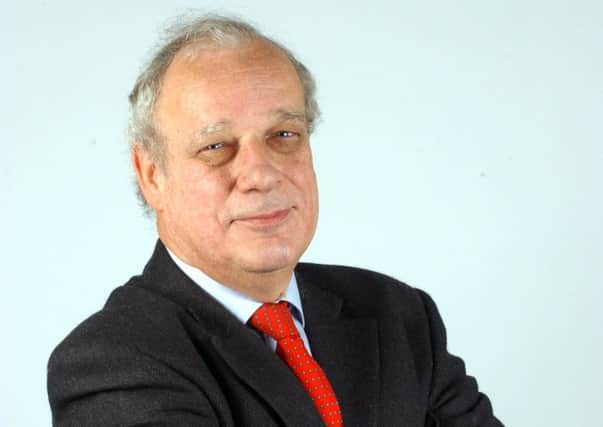Bill Jamieson: Interest rates guessing game will run on


Barely six months later the policy had to be revised and expectations lowered. Today, two years on, Forward Guidance is dead and buried. Signals from central banks now change by the week. Pundits opine on whether rates will rise next month, by the end of the year or not until well into next year. No-one really has a clue what’s going on – or why.
Amid all the feverish guessing as to when rates will finally rise, we have lost sight of why they now need to rise at all. The classic justification is that we need to raise rates to bring inflation under control. But today the inflation rate is at zero. Nor is there much sign of a build-up of inflation pressure.
Advertisement
Hide AdAdvertisement
Hide AdFor the past year stock markets have been traumatised by the continuing rout in commodity and raw material prices. The oil price has slumped to $48 a barrel – down 58 per cent on its level 15 months ago. Shares in oil and mining companies have slumped. Those of resource giant Glencore have tumbled most spectacularly of all, down 70 per cent this year. It hardly points to an inflationary surge ahead.
We once used to fret that higher rates were necessary to cool an overheating economy. But the global economy, led by China, is slowing. And all the signs are that the UK economy is also coming off the boil. Growth forecasts for 2016 have been shaved down to 2.3 per cent – barely above the long term trend rate. There is little sign here that a rate rise is needed to cool surging demand. The latest CBI survey on manufacturing points to a slowdown in order intake while the retail sector has hardly had a buoyant year.
Meanwhile the government continues to rein in growth in public spending, fuelling charges of continuing, grinding “austerity”. Do we really think a rate rise is appropriate when fiscal constraint continues and the economy is slowing?
What, then, is the case for raising rates? I am grateful to John Wyn-Evans, head of investment strategy at wealth manager Investec who was in Scotland last week for a series of investor presentations. He reminded us that core inflation is still running at 1.6 per cent and advanced two arguments for a rate rise. First, with rates at near zero, central banks currently have little fire-power in the armoury to deal with a more serious growth stall. A rate rise now would give them some leeway to address future problems.
The second is that near zero rates create the danger of a mis-allocation of capital. While loose monetary policy prevails, many businesses have found it easier to continue as “zombie” companies, barely covering costs under huge piles of debt rather than allowing the Schumpeterian process of creative destruction to cleanse the system and bring about a re-allocation of capital. The result is a private sector economy that is less efficient in its use of resources and more vulnerable to future setback and downturn.
For now the rate guessing game continues – and the danger here is that the prolonged uncertainty and its de-stabilising effects on financial markets are causing more damage than any premature or overly delayed rise.
Big drive for VW claims
Just when you thought an end might be in sight to those infuriating PPI claim phone calls, stand by for the Volkswagen compensation claim deluge. Grounds for action include compensation for cars sold on the basis of misleading claims, pollution damage, losses suffered on car re-sale values and doubtless the social stigma attached to any car with a diesel engine.
Wyn-Evans reminded his audience that PPI claim payments since 2012 have climbed to a staggering £25 billion – a huge cash injection into the economy that is likely to have been immediately spent on consumer goods, holidays, household gadgets, iPads – and new cars.
Advertisement
Hide AdAdvertisement
Hide AdThe PPI claims bonanza has been arguably more stimulative than a tax cut – and without the consequences of a rise in borrowing or cuts in government spending to finance the wherewithal. Now the litigation lawyers are gearing up for the VW claims bonanza – and our phones ay be ringing off the hook with reminders to get our claims in early. And the compensation could be substantial. Who knows? It may well in time help to fund a new surge in car purchase – though not immediately of VW cars.
John Wyn-Evans will be one of the star speakers at the Scotsman 2015 Investment Conference, “Investing for a New Era” at the Scottish National Gallery, Edinburgh on Wednesday, 4 November. Of particular interest will be his focus on the effect of variations in market performance on personal pension pots. More details are available at www.scotsmanconferences.com.